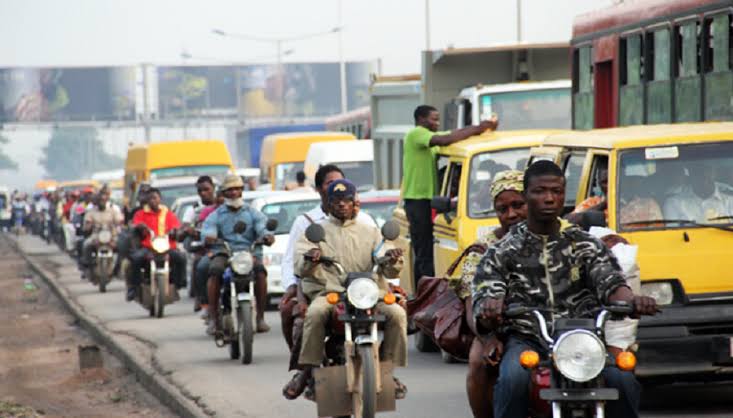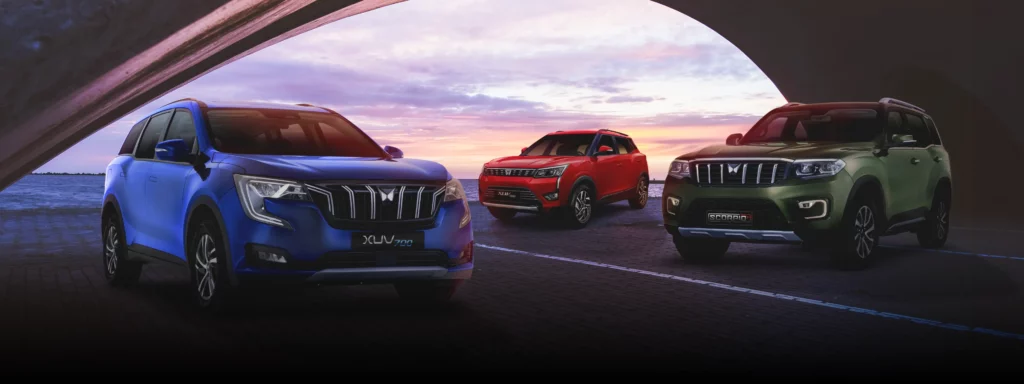In Nigeria, vehicles are not just modes of transportation; they are deeply ingrained in the culture, street lingo, and even humor.
The way people refer to cars, trucks, and motorcycles often strays far from their original names.
Instead of technical accuracy, names are based on brand popularity, utility, or striking features.
Over time, this has led to a rich but sometimes confusing vehicle vocabulary unique to Nigeria.
While this colorful naming tradition adds flavor to the Nigerian experience, it can also create serious miscommunication, especially in contexts such as transportation, logistics, insurance, rentals, or vehicle imports.
This article offers an in-depth look at commonly used vehicles in Nigeria, their proper international names, intended uses, and the often incorrect but widely accepted names they go by in daily conversation.
Whether you’re a transport expert, commuter, car buyer, or just curious about Nigerian street culture, this guide will help you identify what’s really on the road beyond the nicknames.

1. Sedan (Saloon Car)
Use: Sedans are one of the most common car types on Nigerian roads. They are four-door passenger vehicles with a separate boot (trunk) and are ideal for family use, city driving, or even interstate travel.
Correct Name: Sedan (American English) or Saloon (British English)
Nigerian Misnames:
- “Small car”
- “Camry” (used generically)
- Nicknames like “End of Discussion” or “Discussion Continues” for certain Honda Accord models
In Nigeria, many sedans are simply called by their most popular model name, regardless of the actual brand.
For example, any mid-sized car may be referred to as a “Camry,” even if it’s a Nissan Altima or Kia Optima.
The car’s actual classification is usually ignored in favor of something more recognizable or catchy.
2. Hatchback
Use: Compact, fuel-efficient vehicles with a rear door that opens upward, making the cargo area easily accessible. They are perfect for navigating crowded city streets and fuel-conscious driving.
Correct Name: Hatchback
Nigerian Misnames:
- “Small car”
- “Baby car”
Hatchbacks rarely get the recognition they deserve in Nigeria. They are often lumped into the same category as sedans because most people are unfamiliar with the technical differences.
Only car enthusiasts or professionals tend to differentiate between the two.
3. SUV (Sport Utility Vehicle)
Use: SUVs are designed for a mix of city and off-road driving. They offer higher ground clearance, larger interior space, and are perfect for families, executive movement, and tough terrain.
Correct Name: SUV
Nigerian Misnames:
- “Jeep”
The term “Jeep” is generically used to describe any SUV, regardless of brand or model. Whether it’s a Toyota Highlander, Mitsubishi Pajero, or Ford Explorer, it’s all “Jeep” to many Nigerians.
The misname originated from the original Jeep brand, which was one of the first off-roaders in Nigeria and remains an iconic vehicle.
4. Pickup Truck
Use: Built to carry goods and navigate rough terrains, pickups are popular in agriculture, construction, and commercial logistics.
Correct Name: Pickup Truck
Nigerian Misnames:
- “Hilux”
Because the Toyota Hilux has dominated the pickup market in Nigeria for decades, the name “Hilux” has become synonymous with the entire vehicle class.
Even if the truck is a Ford Ranger or Isuzu D-Max, it might still be casually called a Hilux.
5. Minivan/MPV (Multi-Purpose Vehicle)
Use: These spacious vehicles are often used for family transport and small commercial travel due to their comfortable seating and large storage capacity.
Correct Name: Minivan or MPV
Nigerian Misnames:
- “Sienna”
Just as Hilux became a generic pickup name, “Sienna”—referencing the Toyota Sienna — has become the default term for any minivan. A Honda Odyssey, Kia Carnival, or Dodge Caravan may all be called “Sienna” by the average Nigerian commuter.
6. Van (Cargo or Passenger)
Use: These are used to transport goods (cargo vans) or people (passenger vans). They are common in logistics, delivery services, and shuttle businesses.
Correct Name: Van
Nigerian Misnames:
- “Bus”
- “Hummer Bus” (for larger passenger vans)
In many Nigerian cities, especially Lagos, a passenger van like the Toyota Hiace is frequently called a “Hummer Bus” — not to be confused with the Hummer SUV brand. The name simply reflects the vehicle’s size and passenger capacity.
7. Bus (Public Transport Bus)
Use: Buses are used for public mass transportation — both local and inter-city.
Correct Name: Bus
Nigerian Misnames:
- “Danfo” – Lagos yellow minibuses
- “Molue” – Large, now mostly phased-out city buses
- “Hiace” – A general term for small commuter buses
In this case, the naming convention is more about function than form. If a vehicle is used to carry passengers for public transport, it’s usually dubbed with a context-based name like Danfo or Hiace.
8. Trailer / Articulated Truck
Use: These heavy-duty vehicles are designed for long-distance transportation of goods — particularly containers and industrial materials.
Correct Name: Trailer or Articulated Truck
Nigerian Misnames:
- “Container”
People often refer to trailers based on their load. So, if a trailer is hauling a container, it is simply called a “container.” This can be confusing, especially when trying to describe the vehicle itself versus its cargo.
9. Truck (Lorry)
Use: Used for short- and long-distance transport of building materials, commercial goods, and other heavy items.
Correct Name: Truck or Lorry
Nigerian Misnames:
- “Tipper” – Used broadly for all types of trucks, even when they aren’t actually tipper trucks
“Tipper” originally referred to a dump truck with a rear bed that tilts, but the name has spread to include virtually every type of cargo truck.
10. Convertible
Use: Stylish cars with retractable roofs, often used for leisure or high-end city driving.
Correct Name: Convertible
Nigerian Misnames:
- “Open-roof car”
- “American car“
Convertibles are rare in Nigeria due to the weather and road conditions, so when spotted, they tend to spark curiosity or are glamorized.
11. Coupe
Use: Sporty, often luxurious two-door vehicles built for style and performance.
Correct Name: Coupe
Nigerian Misnames:
- “Small car” or simply mistaken for a sedan
Because coupes often resemble smaller sedans, especially to untrained eyes, many Nigerians group them with standard four-door vehicles.
12. Motorcycle
Use: Extremely popular for both personal transport and commercial services — especially in traffic-prone urban centers.
Correct Name: Motorcycle
Nigerian Misnames:
- “Okada”
Named after a now-defunct Nigerian airline that symbolized speed, the word “Okada” has become the default term for motorcycles across the country.
13. Tricycle
Use: Used for short-distance commuting, especially in urban and suburban areas.
Correct Name: Tricycle or Auto Rickshaw
Nigerian Misnames:
- “Keke” or “Keke Napep”
The term “Keke Napep” comes from the government’s poverty alleviation program (NAPEP) that popularized the use of these vehicles.
14. Ambulance
Use: Emergency medical transport for patients and accident victims.
Correct Name: Ambulance
Nigerian Misnames:
- “Emergency van”
While most people understand what an ambulance is, some still generically call it an emergency van.
15. Tanker
Use: Designed to carry liquids like petrol, diesel, or water.
Correct Name: Tanker
Nigerian Misnames:
- Usually called correctly, but sometimes mistaken for “container” trucks due to the trailer setup.
Why These Misnames Persist
- Brand Dominance: People often name vehicle types after the most popular model they’re familiar with.
- Simplicity: It’s easier to say “Sienna” than “multi-purpose vehicle.”
- Low Technical Awareness: Many road users haven’t been exposed to the full classification of vehicles.
- Cultural Adoption: Once a misname becomes part of popular usage, it rarely goes away.
Real-Life Impact of Vehicle Misnaming
- Sales & Rentals Confusion: You might request a Jeep but receive a compact SUV.
- Logistics Problems: Poor planning arises when cargo vehicles are misclassified.
- Insurance & Regulation Issues: Vehicle misidentification can lead to complications in insurance claims and traffic documentation.
Getting Names Right Matters
In Nigeria, vehicle misnaming has evolved into a quirky but culturally rich phenomenon. However, understanding and using the correct names for vehicles helps improve communication, especially in logistics, transport services, auto sales, and insurance sectors.
Whether you’re on the road, buying a car, or managing a fleet, it pays to know the difference between a sedan and a hatchback, a Jeep and an SUV, or a pickup and a Hilux.
So next time someone says, “That Jeep just passed,” pause and ask — was it a Jeep, or just another SUV in disguise?

